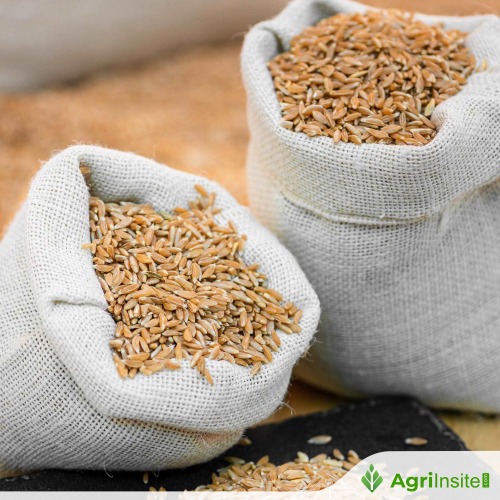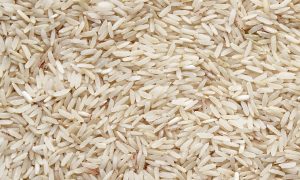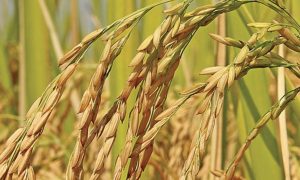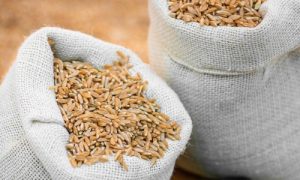Bangladesh Govt to import $1.5b wheat, pulses, LNG from US to secure tariff relief

To reduce its $6 billion trade deficit and avoid a 35% U.S. tariff on exports, Bangladesh plans to import $3 billion worth of U.S. goods, including wheat, LNG, pulses, and cotton. Government and private sector delegations are negotiating deals, despite higher costs, in hopes of securing favorable tariff concessions.
Ahead of final negotiations to secure tariff relief from the United States, Bangladesh has decided to import $1.5 billion worth of American wheat, pulses, and liquefied natural gas (LNG) over the next year to narrow its trade deficit.
The move is part of Dhaka’s efforts to secure a reduction in the proposed 35% reciprocal tariff – due to take effect from 1 August – imposed by Washington on Bangladeshi exports.
In addition, a delegation of private importers from key sectors such as cotton, wheat, soybean and pulses is travelling to the US to explore further imports estimated between $1.5 billion and $2 billion through private channels.
Keep updated, follow The Business Standard’s Google news channel

Infographic: TBS
Speaking to The Business Standard before departing for Washington today (28 July), Commerce Secretary Mahbubur Rahman said Bangladesh plans to boost imports from the US by $3 billion in total.
“Of that, $1.5 billion will be done through government-to-government arrangements within 12 to 18 months, and the rest will come through the private sector,” he added.
Representing the private sector, Bangladesh Textile Mills Association (BTMA) President Showkat Aziz Russell is flying to the US tonight. The country’s textile mills import cotton to produce yarn and fabric.
Representatives from TK Group, Meghna Group and City Group – some of the largest importers of soybean, wheat and pulses in Bangladesh – are also joining the visit.
Commerce Secretary Mahbubur told TBS that while government negotiators are engaging with US Trade Representative (USTR) officials today and tomorrow, the private delegation will meet American exporters to sign procurement deals.
He noted that the private business delegation is voluntarily heading to the US.

Infographic: TBS
Other than the commerce secretary, the government delegation includes Commerce Adviser Sk Bashir Uddin, National Security Adviser Khalilur Rahman, Commerce Secretary Mahbubur, and the commerce ministry’s WTO Cell Director General Nazneen Kauser Chowdhury.
Secretary Mahbubur pointed to Vietnam, which despite a $123 billion trade deficit with the US managed to negotiate a tariff reduction to 20%.
“Bangladesh’s trade deficit is only $6 billion, and we expect it to shrink further within a year,” he said. “We hope our tariff rate will be even lower than Vietnam’s.”
According to Bangladesh Bank, cotton imports reached $7.9 billion in FY24, of which only $361 million came from the US. Wheat imports were $1.76 billion, with $43.4 million sourced from America. Soybean imports stood at $923 million, with about 36.8% ($339 million) from the US.
The government has already signed a deal to purchase 700,000 tonnes of wheat annually from the US and has approved a proposal to buy an additional 220,000 tonnes. Plans are also underway to increase LNG imports and to purchase 25 Boeing aircraft from the US.
Private sector seeks support
BTMA President Showkat Aziz Russell said Bangladesh could increase cotton imports from the US four to five times, potentially reaching $2 billion, which would significantly help reduce the trade deficit.
He noted, however, that US cotton is pricier and has longer shipping times. “Each pound of US cotton costs about $0.03 to $0.04 more,” he said.
Russell proposed government support to offset this cost, suggesting the import of cotton at a higher price to be stored in a central bonded warehouse and sold to traders at standard rates.
Alternatively, raising the Export Development Fund ceiling per trader from $20 million to $30 million and lowering interest rates to 1% could encourage more imports.
He also plans to propose to the US government that garments made with at least 20% US-origin cotton fabric should attract the previous lower tariff of 15%, instead of the proposed 35%.
Muhammad Mostafa Haider, president of the Bangladesh Edible Oil Association and director of TK Group, said the commerce adviser had asked him to join the US trip.
“I don’t currently have a US visa, but a representative from our group will go,” he said, adding that the government had urged them to increase soybean and wheat imports from the US.
Haider said Bangladesh usually sources soybeans from both Brazil and the US. “The seasons are different. When Brazilian supply dries up, we turn to the US. Their soybeans are premium quality and come at a higher price.”
He added, “US wheat costs $20 to $30 more per tonne, but the quality is also better. To avoid any negative impact on our exports, we’re willing to increase imports from the US at the government’s request. But if the cost becomes too burdensome, we’ll need support from the state.”
Taslim Shahriar, deputy manager at Meghna Group, told TBS that a senior official from their company is heading to the US. “We will do everything we can to increase imports in the national interest.
Haji Shafi Mahmud, president of the Bangladesh Pulse Traders Association, said the commerce ministry had asked them to increase imports from the US.
But he said, “We rarely import more than 400 to 500 tonnes at once. We mostly source from Canada, Australia and India, where prices are lower.”
He added that the current pulse market is dominated by Meghna, City, TK and Bashundhara groups. “These companies import up to 30,000 tonnes in one go. We’ve told the ministry to speak with them instead.”
To Read more about Wheat News continue reading Agriinsite.com
Source : The Business Standard

















